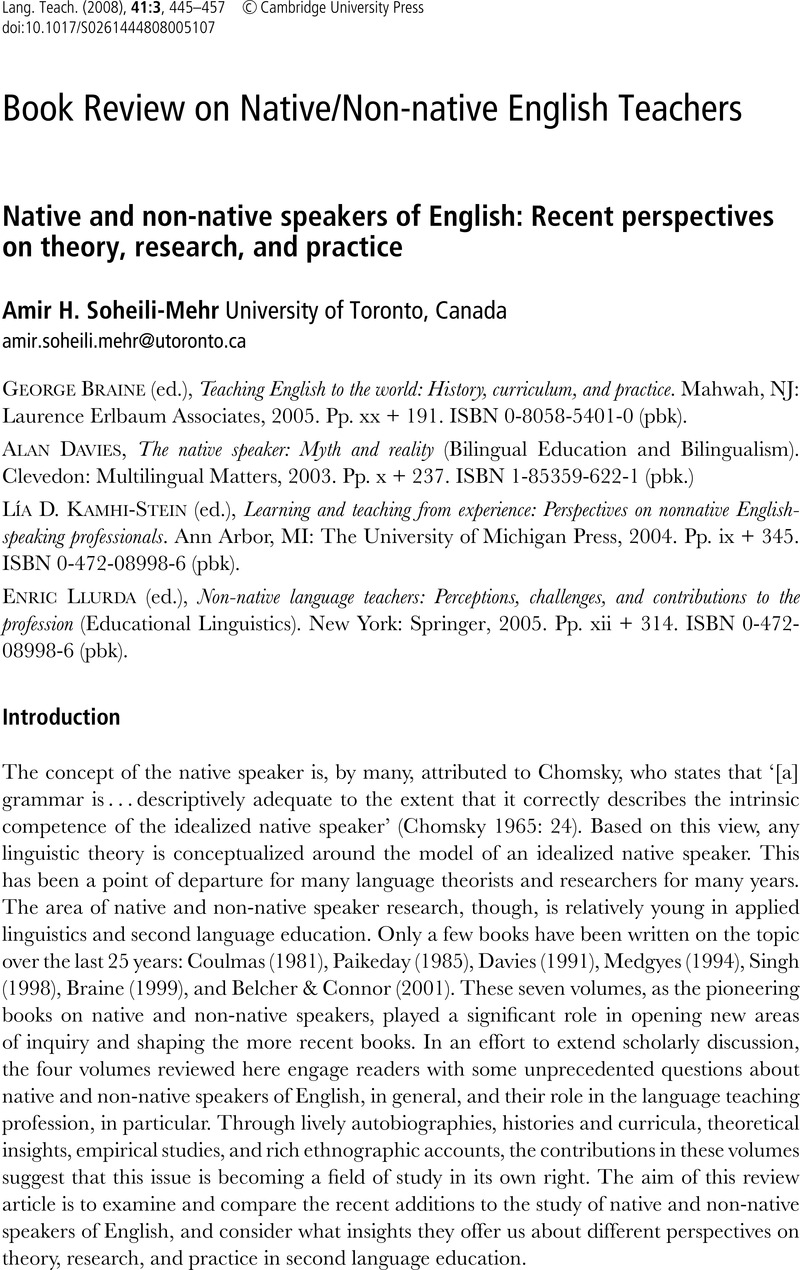Crossref Citations
This article has been cited by the following publications. This list is generated based on data provided by Crossref.
2015.
Pronunciation Fundamentals.
Vol. 42,
Issue. ,
Levis, John M.
Sonsaat, Sinem
Link, Stephanie
and
Barriuso, Taylor Anne
2016.
Native and Nonnative Teachers of L2 Pronunciation: Effects on Learner Performance.
TESOL Quarterly,
Vol. 50,
Issue. 4,
p.
894.
Huang, Zheng
2018.
Native and Non-Native English Speaking Teachers in China.
p.
117.





